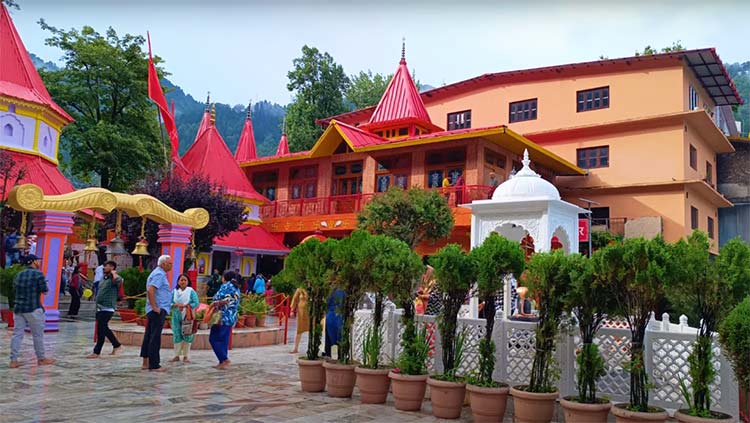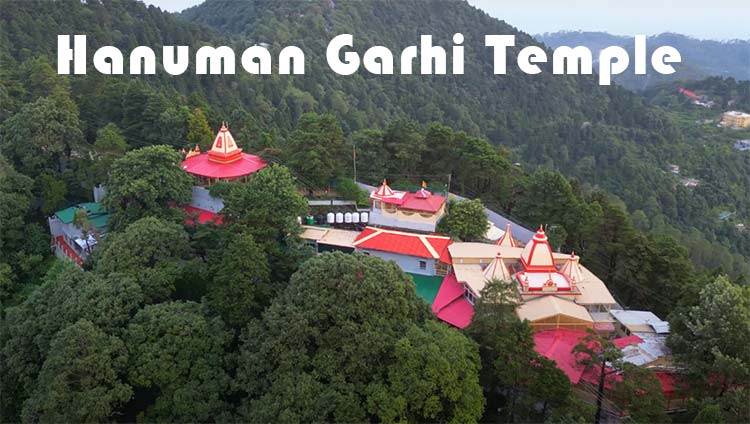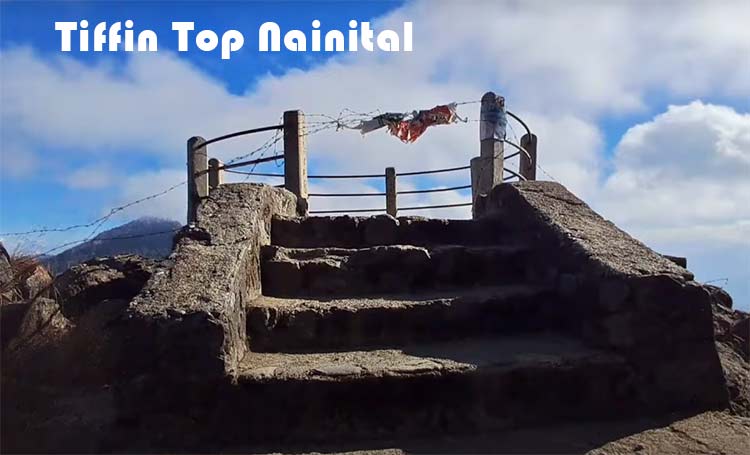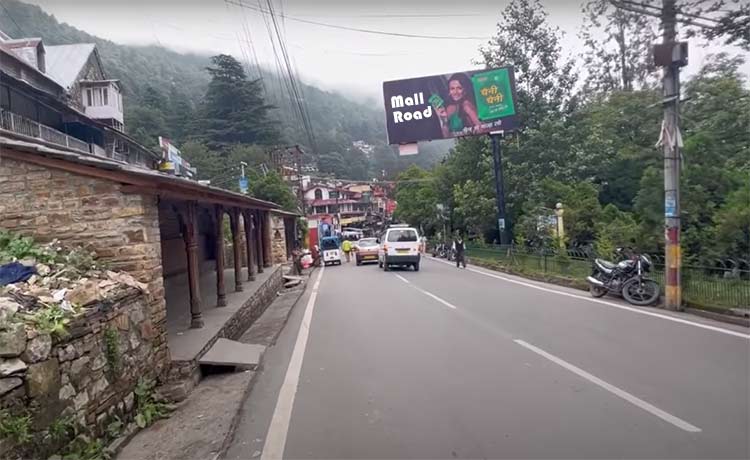The Jhirna Zone stands as a prominent ecotourism area within the Jim Corbett National Park, comprising seven designated zones. Established in 1994, the Jhirna Zone was incorporated into the park’s framework to expand the Tiger reserve area.
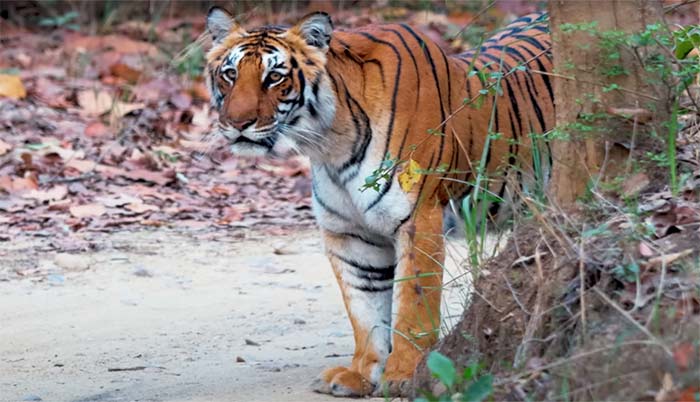
This expansion involved the inclusion of agricultural lands from Jhirna village and two other villages, necessitating the relocation of these settlements to alternative locations. The vacated lands underwent redevelopment, transforming into a vibrant and diverse lush forest ecosystem.
Distinguished by its operational status throughout the year, the Jhirna Zone offers wildlife safaris consistently, in contrast to other zones that close during the monsoon season. This accessibility ensures a steady influx of visitors all year-round.
Location of Jhirna Zone
Jhirna is situated on the southern periphery of the Jim Corbett National park. In addition to its tiger population, this zone is home to sloth bears and wild elephants, providing captivating sights for wildlife enthusiasts. The Jhirna zone remains accessible year-round and is renowned for being one of the most visually appealing areas within the Corbett national park.
Access to the Jhirna Zone for day visits is facilitated through the Dhela Gate, located 18 kilometers from Ramnagar. The predominant topography of this region primarily consists of deciduous and secondary forests, interspersed with expansive open grasslands. This landscape enhances visibility, offering an excellent opportunity to observe and appreciate a diverse array of wild animals.
Formalities to enter into Jhirna Zone
Primarily, private vehicles are prohibited within the designated zone. Those desiring to explore the Jhirna Zone are required to reserve a Jeep Safari. Each jeep can accommodate up to six adults and two children. Additionally, there are restrictions on the number of jeeps permitted entry into the zone.
Therefore, to gain access to the Jhirna Zone, it is imperative to procure a safari permit from the forest authorities. Additionally, one must arrange for the hire of a designated safari vehicle and engage the services of a qualified naturalist/guide.
The entry point to the Jhirna Zone is the Dhela Gate, situated approximately 18 kilometers from Ramnagar, the nearest town, and transportation hub which includes the railway station and bus stand. Jhirna Zone safaris are conducted year-round, featuring two shifts per day, each accommodating a maximum of 30 Jeeps. For a streamlined experience, permits, safari vehicles, and guides for Jhirna Safari, along with nearby accommodation options can be conveniently arranged through our website.
Quick Facts about this Safari Zone
- Zone Entry Gate – Dhela Gate
- Distance from Ramnagar – 18 KM
- Operational Period – Open year-round (subject to road and weather conditions)
- Safari Type – Day Jeep Safari
- Maximum Number of Jeep Allowed – 30 Jeeps per Shift (Two Shifts per day)
- Staying option inside Zone – Yes, Jhirna Forest House
- Duration of Exploration – 3 hours and 30 minutes
Timings and Safari Prices:
There are two times you can go on a Jeep Safari in the morning or in the evening, and these timings can vary based on the season, summer timings may differ from winter timings.
| Winter timings | ||
| Safari Types | Entry Time | Exit Time |
| Morning Safari | 07:00AM | 10:00AM |
| Evening Safari | 02:00PM | 05:30PM |
| Summer timings | ||
| Safari Types | Entry Time | Exit Time |
| Morning Safari | 06:00AM | 09:30AM |
| Evening Safari | 03:00PM | 06:30PM |
As far as the cost of Jeep Safari is concerned, each Jeep may cost you between ₹6500 and ₹7500, and this cost may increase during the peak season. As mentioned earlier, one Jeep can accommodate 6 adults and 2 children to enter the zone. So, if you are a group of 6 people, the individual cost can range from ₹1000 to ₹1300.
Flora and Fauna at Jhirna Zone
The place has wide grasslands called Chaur. It mostly has dry areas with some smaller forests. There are many streams, and their beds are warm and easy to explore. Next to the streams, there are cliffs where you can enjoy bird watching.
Recognized as one of the prime locations for observing tigers in their natural environment, this zone is imperative for wildlife enthusiasts and is highly recommended for visitation.
Best time to Visit
The Jhirna Zone is open for visitors all year round, so you can visit anytime. However, from July to September during the monsoon season, you can’t book safaris in advance because they might get canceled on the day due to heavy rain or bad weather. To make it convenient, you can get day permits for safaris directly from the counter on the same day.
Famous attractions
The Jhirna Zone is renowned for its daytime safari activities conducted throughout the entire year. Jungle safaris are facilitated through the utilization of registered jeeps, and the presence of registered nature guides is obligatory for all wildlife trips.
Moreover, within the zone, substantial grassland named Laldhang Chaur is situated, serving as a preferred habitat for plant-eating animals like elephants and deer.
Near By Attractions:
There are some notable tourist attractions near the entry gate of Jhirna Zone, including Garjiya Devi Temple, Kosi River, Dhangarhi Museum, Sitabani Temple, and Shri Hanuman Dham.
- Garjiya Devi Temple (32 KM)
- Kosi River (21 KM)
- Dhangarhi Museum (36KM)
- Sitabani Temple (41KM)
- Shri Hanuman Dham (26KM)
How to reach Jhirna Zone
Address – Dhela Gate Jhirna Zone, Corbett National Park, Dhela Uttarakhand – 244715, India
Latitude – 29.4156° N, Longitude – 78.9939° E
The entry gate of the Jhirna Zone is just 18 km away from Ramnagar. The city of Ramnagar is well-connected by road and train transportation. However, the nearest airport, Pantnagar, is approximately 99 km away from the entry gate of Jhirna.
To explore the Jhirna Zone, you need to have a registered jeep. You can book your jeep in advance by contacting Jai Bhumia Travels or any other travel agent or safari provider situated in Ramnagar.
If you are traveling during the monsoon season, you can book a Jeep Safari on the spot from any travel agent, such as us, or from the designated counter.
FAQs about Jhirna Zone Corbett Safari
The Jhirna Zone is a prominent ecotourism area within Corbett National Park, featuring diverse wildlife and lush landscapes. It is one of the seven designated zones and has been operational since 1994.
This Zone is situated on the southern periphery of Jim Corbett National Park, known for its tiger population, sloth bears, and wild elephants. Access is through the Dhela Gate, located 18 kilometers from the town of Ramnagar.
Private vehicles are prohibited. To explore Jhirna Zone, you must book a Jeep Safari, accommodating up to six adults and two children. Obtain a safari permit from forest authorities, hire a registered safari vehicle, and engage a qualified nature guide.
Yes, Jhirna Forest House offers staying options within the zone.
Day Jeep Safaris are conducted year-round, with two shifts per day, allowing a maximum of 30 Jeeps per shift. The exploration duration is 3 hours and 30 minutes.
Timings vary by season. In winter, morning safaris are from 07:00 AM to 10:00 AM, and evening safaris are from 02:00 PM to 05:30 PM. In summer, morning safaris are from 06:00 AM to 09:30 AM, and evening safaris are from 03:00 PM to 06:30 PM. Jeep Safari costs range from ₹6500 to ₹7500, with variations during peak seasons.
This zone is open year-round but October to June is optimal time to visit.
This Zone is known for diverse flora and fauna, including tigers, elephants, and deer. The Chaur grasslands and nearby streams offer excellent bird-watching opportunities.
Notable tourist attractions near the Jhirna Zone include Garjiya Devi Temple, Kosi River, Dhangarhi Museum, Sitabani Temple, and Shri Hanuman Dham.
The Jhirna Zone’s entry gate is 18 km from Ramnagar, well-connected by road and train. The nearest airport is Pantnagar, approximately 99 km away. Book a registered jeep in advance for exploration.
You can discover additional Tourist Attractions by clicking the link below
Tourist attractions in Jim Corbett
